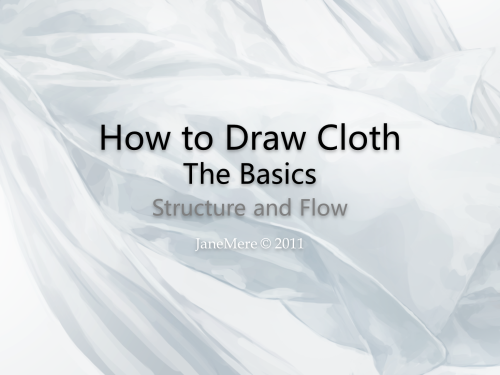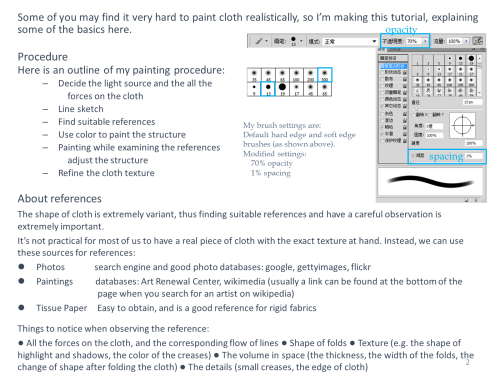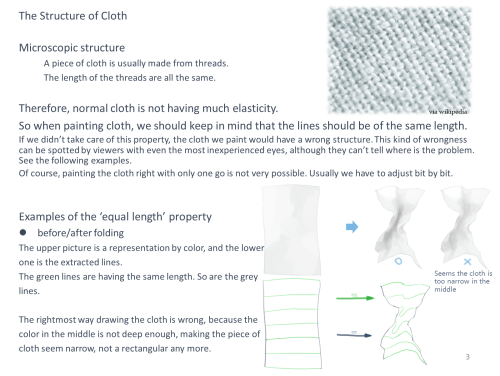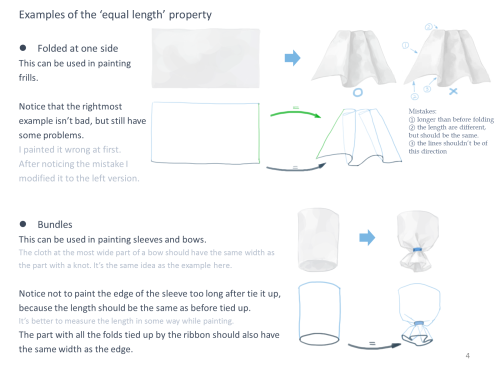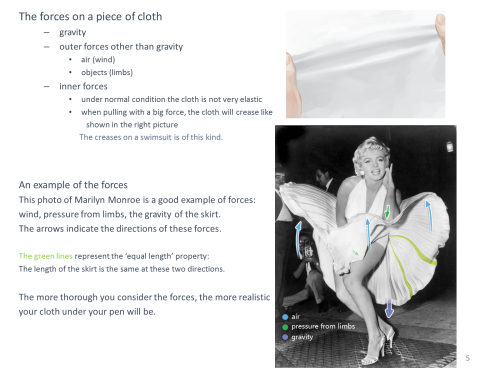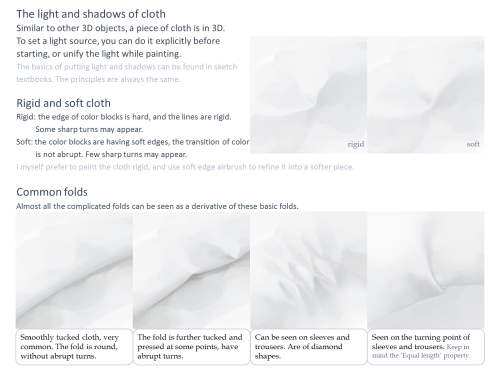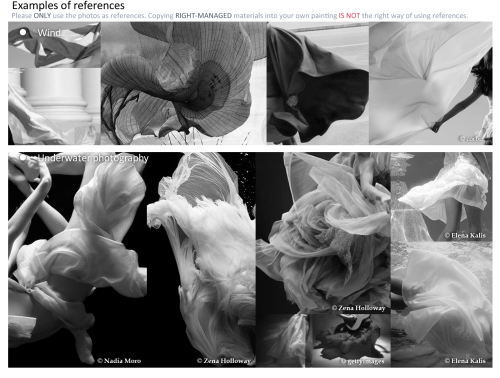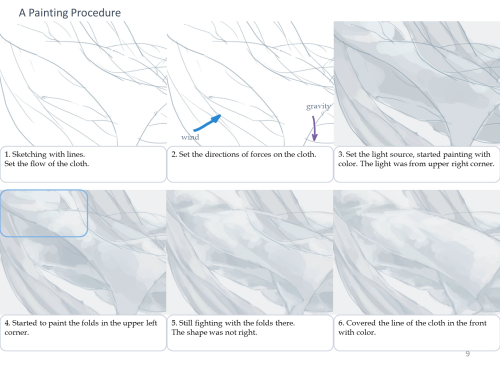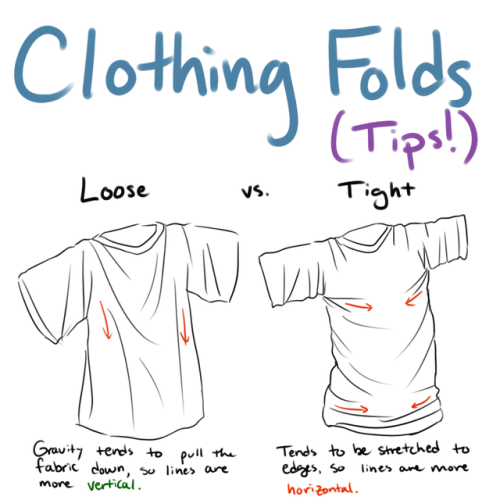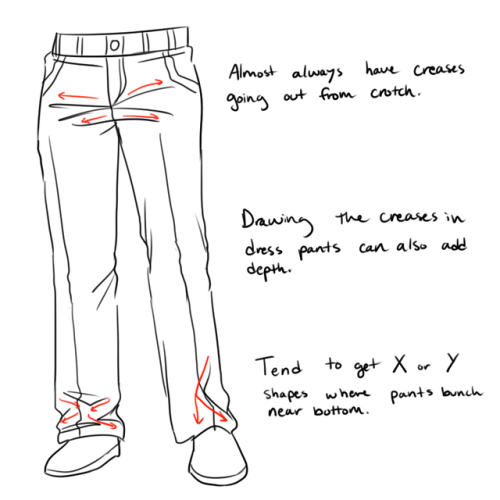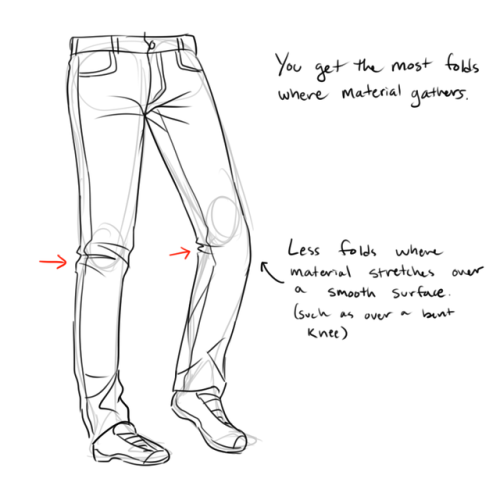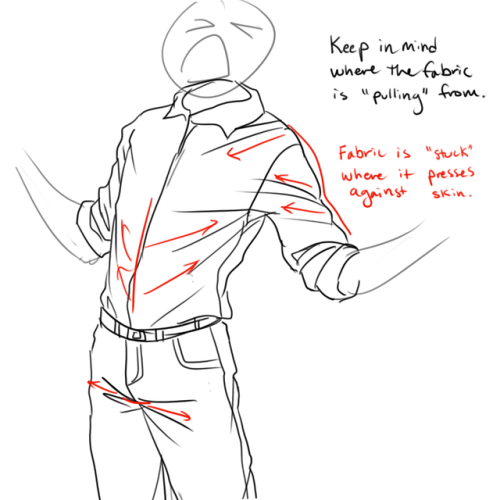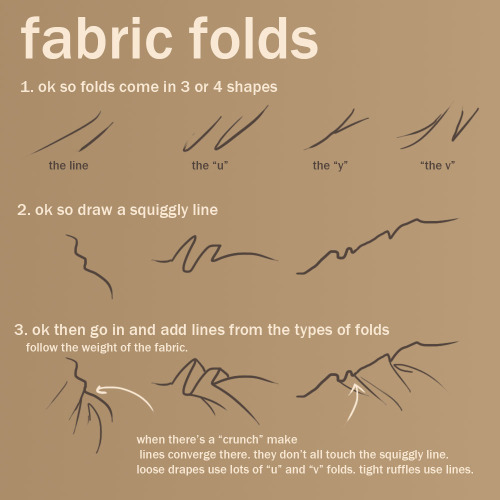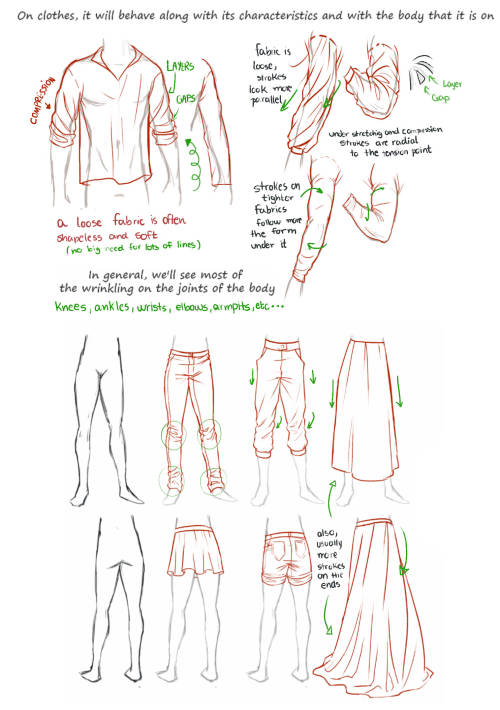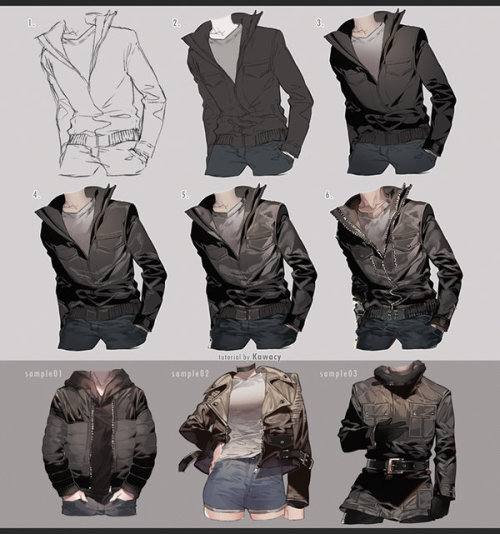Chlothes - Blog Posts

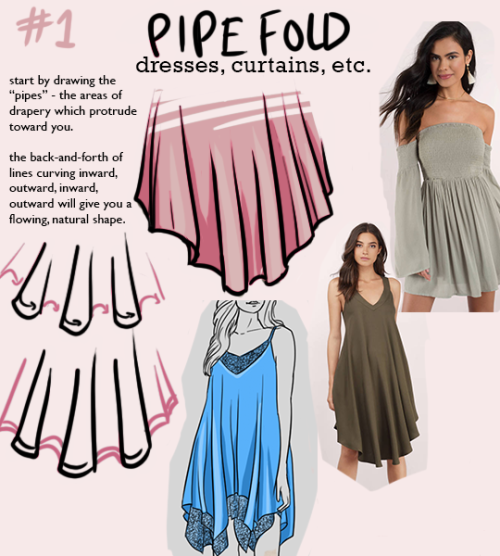
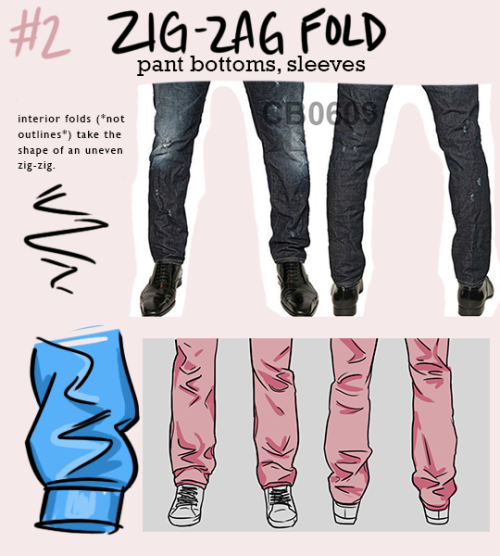
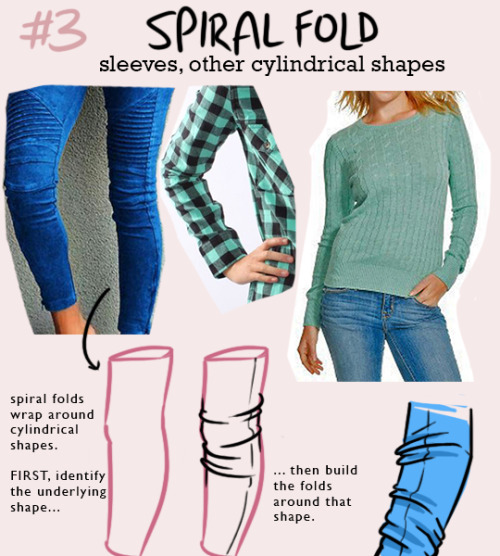
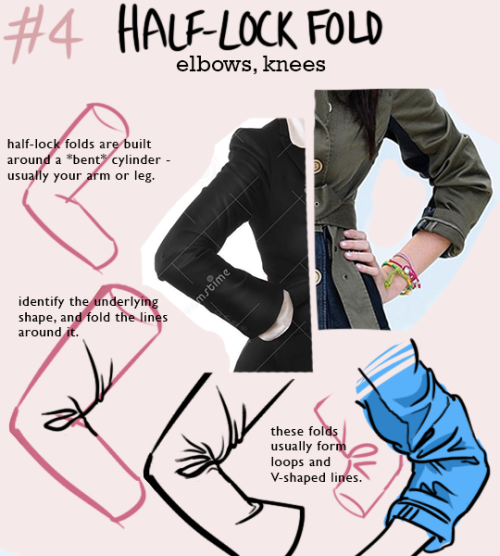
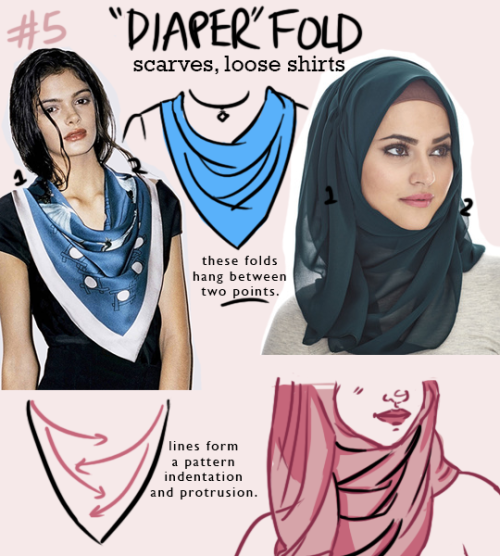
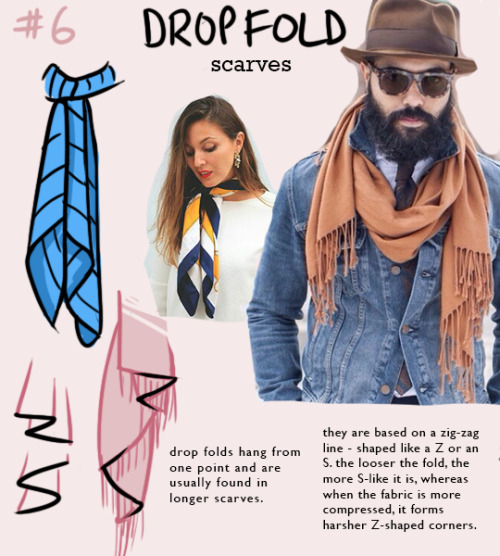
NOTE: one type of fold will rarely appear on its own - they interact with each other quite a bit! for example, spiral folds might define the outline of a pant leg, while the interior folds might be zig-zag folds.
i’m trying to re-learn how to draw clothing, so i made this little guide to the most common shapes of folds that appear. hope it helps someone else too!
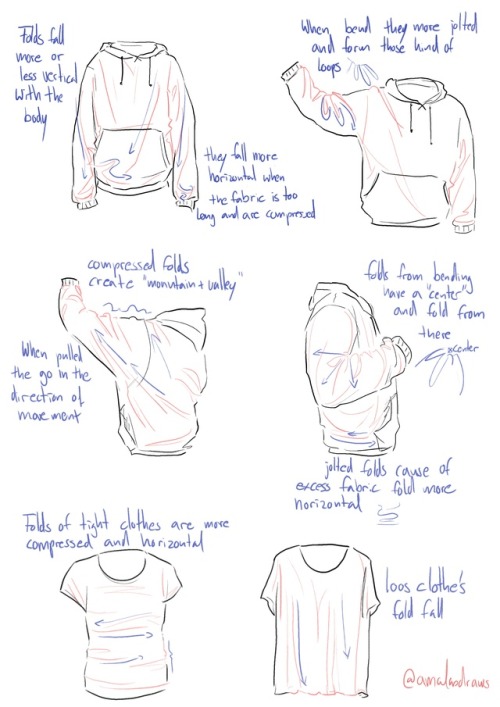

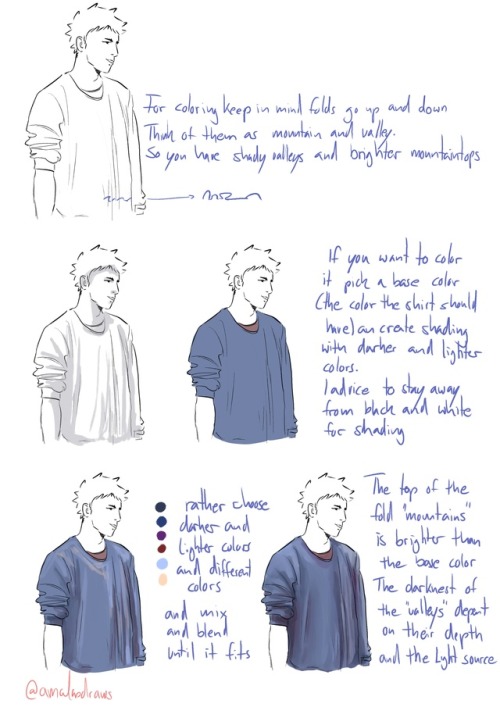

THANK YOU! ANON!
I stopped the coloring of the shirt here cause I guess you get the basic idea. If you wanna see more of the coloring and the brush I use you can look HERE! Also you can see how not just folds but shading can define a form HERE!
I hope this helps! I’m so bad with words and explaining things (/)//(/)

Finally I got around to this. =ヮ=
Since there are so many different possibilities, this one was hard to make.
It’s hard to want to show a little bit of everything, but keep the sheet small as well orz.
Sorry there is only one shaded example lol (shading folds is a different story I think)
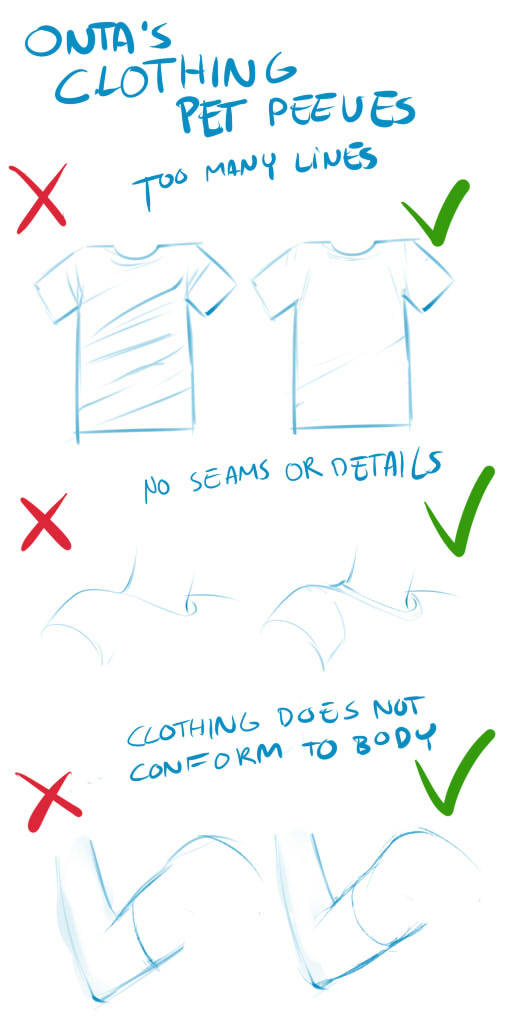
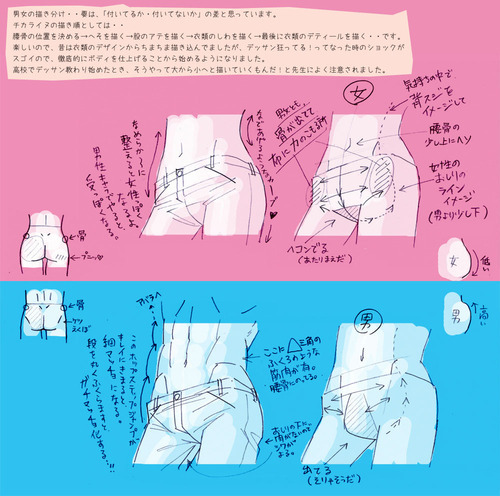
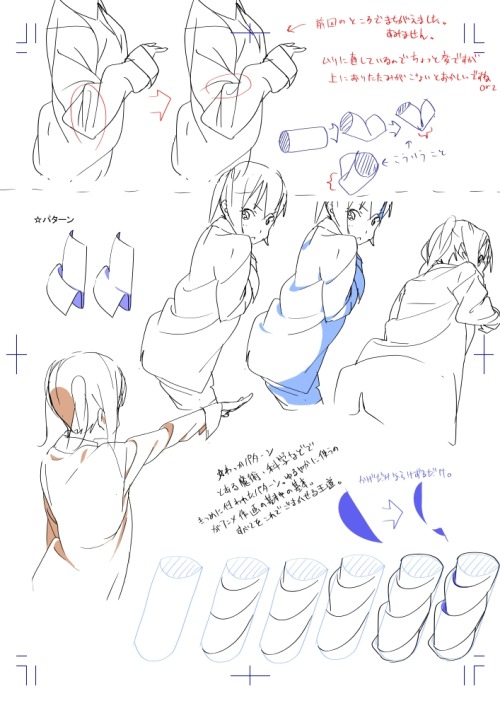
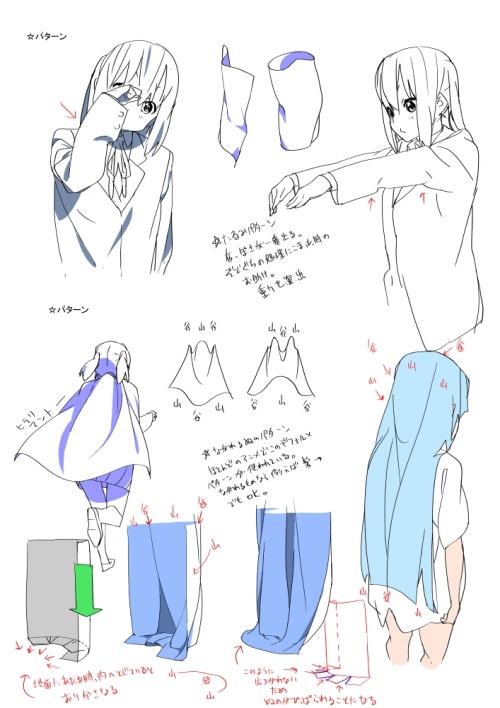
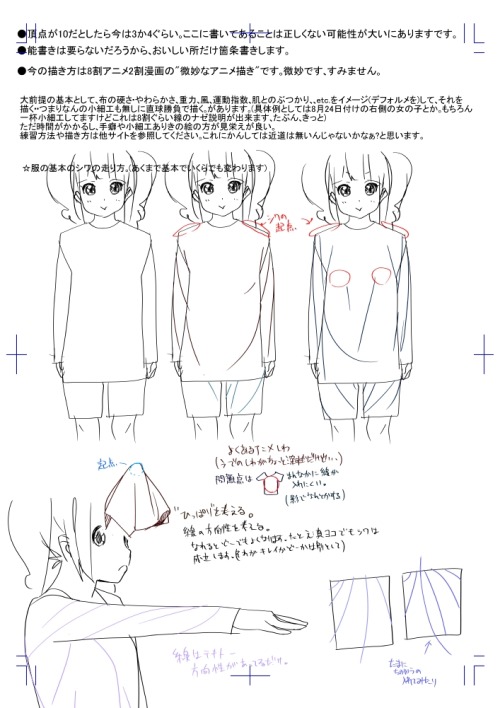
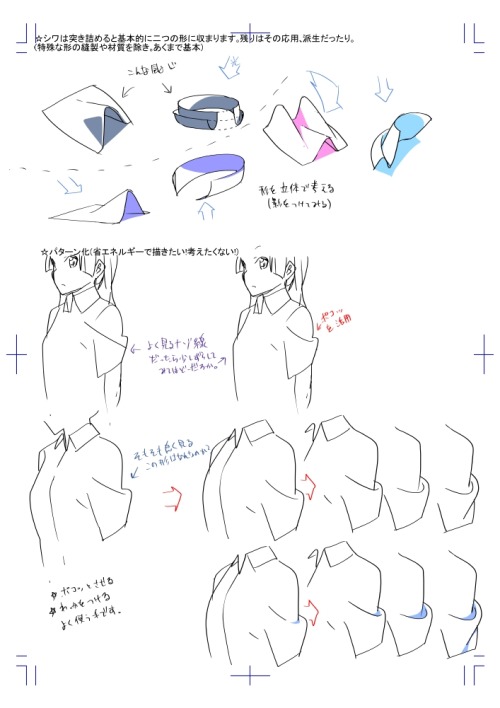
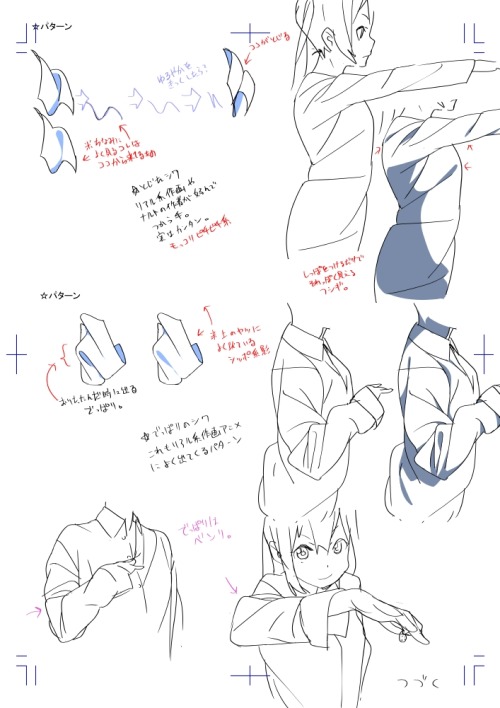
Clothing Tutorials,Tips and Guides
In order to make interesting designs of clothing, look around the web about outfit design, keep your mind with fresh ideas so then you can draw nice outfits on your characters.
Remember to keep in mind color theory when designing an outfit too, keep it balanced unless you are aiming for a sparkledog, then go nuts with the colors.





Hey friends!
Sorry for the late TUTOR TUESDAY, but here it is! Today is on clothing folds and was a recommendation from @kitemist, thanks! If you have any recommendations you’d like to see send ‘em in here or my personal! Hopefully I can expand on clothes more soon! Keep practicing, have fun, and I’ll see you next week!
I know I asked this before but honestly i’m desperate, how do you draw folds? I understand pressure points and everything but I still can’t draw them. T^T
ACK! So sorry! Anyway. Tbh it’s a bit hard? But not to the point where you’ll get super frustrated. That’s why I didn’t emphasize this. Also it’s hard to explain but here are the rules I gathered:
- Remember direction. Observe real clothes and understand the type of objects that will push or pull the cloth.

- practice on random lines/ziggy zags and make them the fabric. After you make random shapes or lines, give them the folds. Limit the folds! Large fabric and small objects, MORE folds. Small fabric and large objects, LESS folds. Equal, only NECESSARY folds.

- The type of the fabric will always also limit your drawing of folds.

- KNOW YOUR OBJECTS. BE PATIENT. Don’t just copy references of folds all the time. Try to understand the objects first that will affect the clothe and make folds. So in any angle you’ll make folds you don’t need to worry. But do lots of observing. There’s so much pictures in Google that’s easier to determine folds. Good luck!
I just read all of your art tutorials and they seem super helpful! I was wondering if you had any advice on how to draw clothing?
Yeah! here are some tips on drawing fabric and clothing that I sent to a friend a while back:
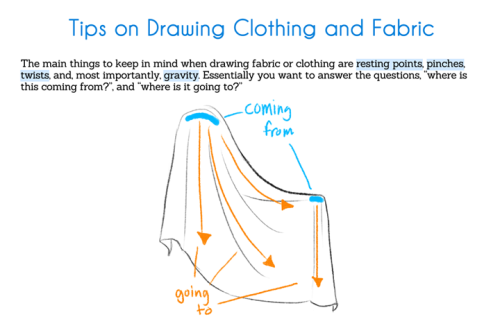
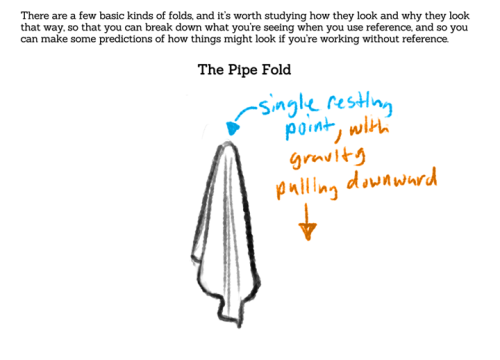


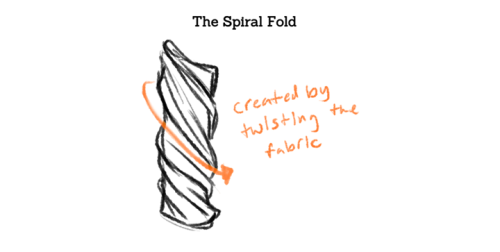

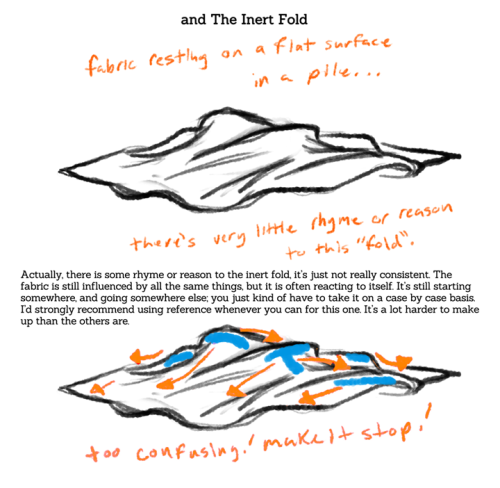
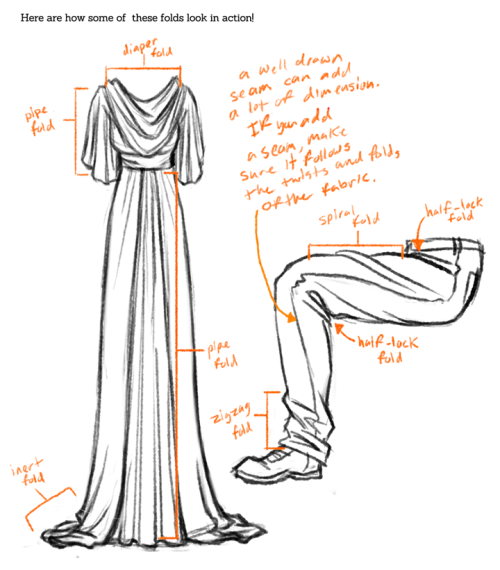

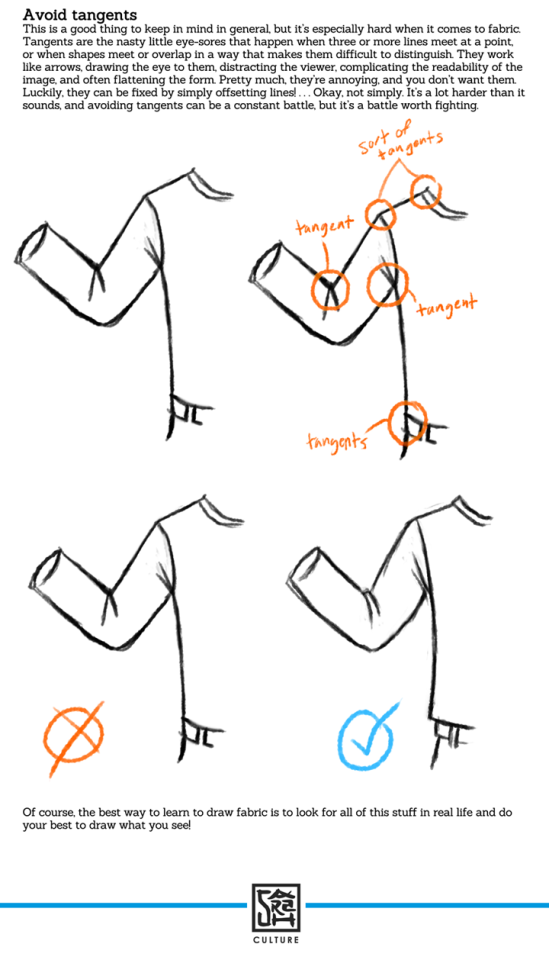
Hope that’s helpful. Thank you so much, @yosugayhomomura !

A selection of reference imagery showing how a hooded sweater will crease and fold in various poses.
The full size image can be downloaded here:
http://jesterman.deviantart.com/art/Hooded-Top-Clothing-Reference-484552908 I recommend using this only for folds, not as an anatomy reference, due to the quality of the camera used, which has distorted some of the proportions from this distance. If you have any suggestions for items of clothing you want to see referenced, drop me a comment!
I am so envious of your fabric folds <3 Teach me senpai?
ALL RIGHT I’LL TRY!Note: This is how I personally work with folders, i’m not right neither wrong, different artists have different ways to do the same thing. Remeber to check for more than one as refference!

The shame is HEAVILY influenced by the wind or movement on the character/object, so are the folds that follow the flow of whatever is influencing them!


Always consider the fabric you’re planning to use, a heavy one won’t have as many folds, but will have more bumps, meanwhile thin ones tend to have A LOT of folds and not so many bumps, and often fold over themselfs


If you don’t plan how the object/dynamic/wind whatever will influence the fabric, you may come up with this:


The tip of the arrows will have LESS folds because it’s where the wind is blowing, meanwhile the back of the arrows will have a lot of folds, since it’ll curl and bump on itself!
You can’t just toss folders around without planning how they will be affected, works very similar as hair does!
It ended up so long i really hope it helps omgg ;w;If you want to support me and help me to make more tutorials, you can always tip me! (Not mandatory, don’t feel pressured!)
















